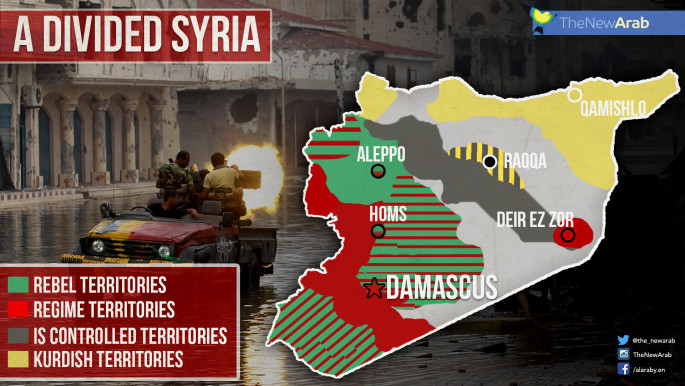Syria 'ready for elections in 18 months'
UN Syrian envoy Staffan de Mistura has said that Syria will only be ready for elections in 18 months' time, as diplomats push warring sides to build on a recent ceasefire.
It comes as the regime insists on elections being held next month, also a timeframe backed by Damascus' ally Russia, but the Syrian opposition and its international allies see as hugely premature.
"New elections... should be held 18 months from the start of talks, that is from 14 March," de Mistura told Russian state news.
"The elections, both presidential and parliamentary, will be under UN observation."
Elections
Syria's Baath Party have already taken to the streets of Damascus to urge people to take part in the elections set for 13 April.
Wael al-Imam, secretary of the party which dominates the regime, said that a high turnout would send out a message that Syrians "believe in democracy and freely practice their right to self-determination", according to a pro-Damascus newspaper.
Syria's largely marginalised domestic opposition group, the National Coordination Committee for Democratic Change, has decided to boycott elections, while there is close to zero chance that the opposition abroad would consider taking part.
The Higher Negotiations Committee which represents the opposition bloc in negotiations had said it would attend indirect peace talks with the regime on 14 March.
This is part of the opposition's "commitment to international efforts to stop the bloodshed and find a political solution", the group said.
The group said it would not set preconditions for talks, but has insisted that President Bashar al-Assad plays no role in a future government.
Partition plan
Another stumbling block to peace is Russian Foreign Minister Sergei Lavrov's insistence that the Kurds are included in upcoming talks.
"I am convinced that Staffan de Mistura should take such a decision," he said. "Launching negotiations without the participation of this group would be a sign of weakness from the international community."
 |
| [click to enlarge] |
The Kurdish forces in the north are backed by both the US and Russia, and lead the fight against the Islamic State group in Syria.
However, they have also attacked rebel positions and have been accused of a land grab of Arab villages in Aleppo.
Continuing negotiations and planning for a new Syria without the Kurds would be a "most serious infringement of the rights of a large and significant group living in Syria", Lavrov added.
Such divisions threaten the very existence of Syria. Talk has been growing of a federal system being the future of the country after the war, or even a partition between the country's many competing entities.
A UN diplomat speaking on condition of anonymity to Reuters, said this was the plan already being mooted by international negotiators.
"While insisting on retaining the territorial integrity of Syria, so continuing to keep it as a single country, of course there are all sorts of different models of a federal structure that would, in some models, have a very, very loose centre and a lot of autonomy for different regions," the diplomat told the news agency.
The plan would maintain Syria as a single entity and state, but would involve the federal system, no doubt divided along regional lines.
This idea would be intended to give different religious and ethnic communities a degree of autonomy, but it might also run along the lines of territories held by competing paramilitary forces.





 Follow the Middle East's top stories in English at The New Arab on Google News
Follow the Middle East's top stories in English at The New Arab on Google News


